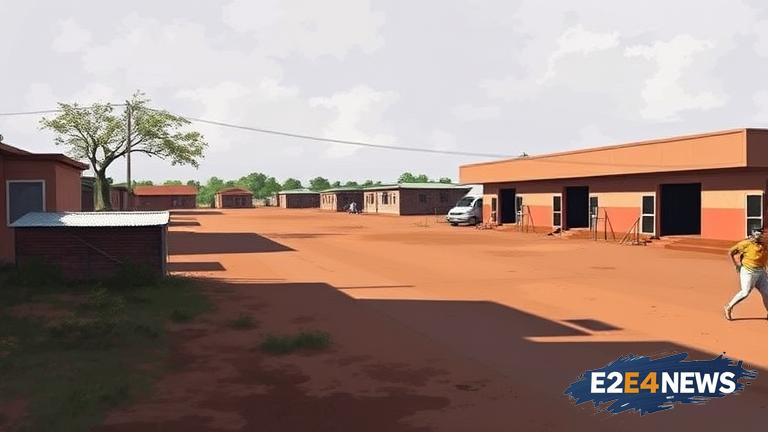Botswana, a country located in Southern Africa, has declared a public health emergency due to a severe shortage of essential medicines. The shortage, which has been ongoing for several months, has affected various healthcare facilities across the country, including public hospitals and clinics. The government has attributed the shortage to a combination of factors, including a lack of funding, inefficient supply chain management, and a shortage of skilled healthcare professionals. The situation has become so dire that patients are being forced to seek medical attention from private healthcare providers, which are often unaffordable for the majority of the population. The public health emergency declaration is aimed at mobilizing resources and support to address the shortage and prevent further deterioration of the healthcare system. The government has promised to increase funding for the healthcare sector and implement measures to improve supply chain management and retain skilled healthcare professionals. However, critics argue that the declaration is a belated response to a crisis that has been unfolding for years. They point out that the government has been aware of the shortage for some time but has failed to take decisive action to address it. The shortage has had a disproportionate impact on vulnerable populations, including children, pregnant women, and people living with chronic illnesses. Many patients have been forced to go without essential medications, which has led to a significant increase in morbidity and mortality rates. The situation has also had a negative impact on the country’s economy, as patients are forced to seek medical attention from neighboring countries, resulting in a significant outflow of foreign exchange. The international community has been called upon to provide support and assistance to help address the shortage. The World Health Organization (WHO) has offered to provide technical assistance and support to help the government develop a comprehensive plan to address the shortage. The African Union has also pledged to provide support and assistance to help the government address the crisis. Despite these efforts, the situation remains dire, and there are concerns that the shortage could have long-term consequences for the country’s healthcare system. The government has been urged to take a more proactive approach to addressing the shortage, including increasing funding for the healthcare sector, improving supply chain management, and retaining skilled healthcare professionals. The opposition has criticized the government for its handling of the crisis, arguing that it has failed to prioritize the healthcare needs of its citizens. The situation has sparked widespread outrage and concern among the population, with many calling for the government to take immediate action to address the shortage. The media has also been critical of the government’s response, arguing that it has been slow to respond to the crisis. The situation has highlighted the need for a more comprehensive and sustainable approach to healthcare in Botswana, one that prioritizes the needs of its citizens and ensures that they have access to essential medicines and healthcare services. The government has been urged to develop a long-term plan to address the shortage, one that takes into account the root causes of the crisis and provides a sustainable solution. The plan should include measures to improve funding for the healthcare sector, enhance supply chain management, and retain skilled healthcare professionals. It should also include measures to increase access to essential medicines and healthcare services, particularly for vulnerable populations. The international community has a critical role to play in supporting the government’s efforts to address the shortage, including providing technical assistance, funding, and other forms of support. The situation in Botswana is a stark reminder of the need for a more comprehensive and sustainable approach to healthcare in Africa, one that prioritizes the needs of its citizens and ensures that they have access to essential medicines and healthcare services.
